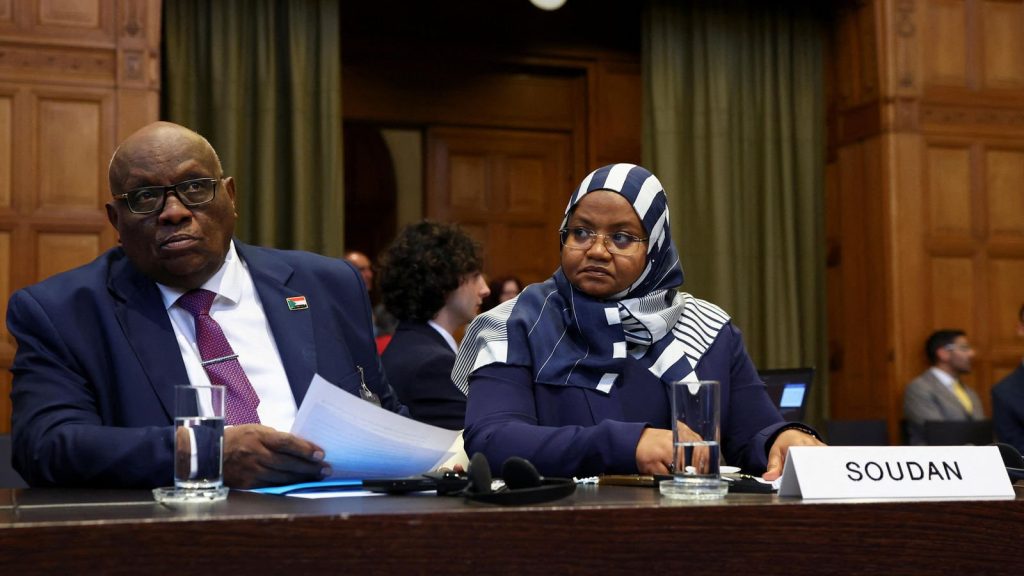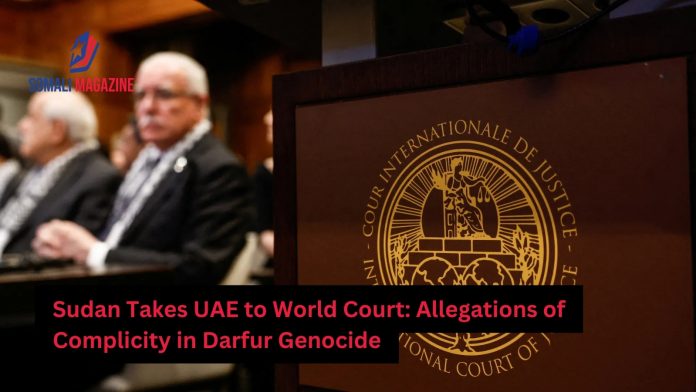Facebook Twitter Instagram Somali Magazine - People's Magazine
The case, presented on April 10, 2025, alleges that the UAE has violated the Genocide Convention by providing arms and logistical support to the paramilitary Rapid Support Forces (RSF), which have been implicated in ethnic-based atrocities against the non-Arab Masalit community in West Darfur.
Sudan’s acting Justice Minister, Muawia Osman, delivered a powerful opening statement at The Hague-based court, asserting that the genocide against the Masalit people would not be possible without the UAE’s involvement. “The direct logistical and other support that the UAE has provided and continues to provide to the RSF has been the driving force behind the genocide now taking place,” Osman stated. He detailed allegations of killings, rape, forced displacement, and looting, all reportedly carried out with UAE-backed resources.
The RSF, which has been locked in a brutal conflict with Sudan’s army since 2023, has been accused of targeting the Masalit community in what the U.S. officially recognized as genocide earlier this year. Sudan claims that the UAE’s arms shipments and financial aid have enabled the RSF to carry out these atrocities, further destabilizing the region.
Sudan is seeking emergency measures from the ICJ to compel the UAE to halt its alleged support for the RSF and prevent further genocidal acts. The case also demands reparations for victims of the conflict, including compensation for the widespread destruction and displacement caused by the RSF’s actions.
The UAE has vehemently denied the allegations, dismissing Sudan’s case as baseless and politically motivated. Reem Ketait, a senior official at the UAE Ministry of Foreign Affairs, described the proceedings as a “cynical and baseless PR stunt” designed to distract from Sudan’s own record of atrocities. “What Sudan needs now is not political theater but an immediate ceasefire and a serious commitment to peace negotiations,” Ketait stated.
Legal experts have raised questions about the viability of Sudan’s case, citing jurisdictional challenges. When the UAE acceded to the Genocide Convention in 2005, it included a reservation to Article IX, which allows countries to bring disputes before the ICJ. This reservation could prevent the court from proceeding with the case, as similar reservations have been upheld in past rulings.
Despite these hurdles, Sudan has argued that the UAE’s reservation is incompatible with the purpose of the Genocide Convention, which emphasizes collective responsibility to prevent and address the world’s worst crimes. The ICJ’s decision on jurisdiction will be closely watched, as it could set a precedent for future cases involving reservations to international treaties.

The case has drawn international attention, with human rights organizations and advocacy groups calling for accountability and justice for the victims of the Darfur conflict. The United Nations and other global bodies have documented extensive abuses by both the RSF and Sudanese armed forces, underscoring the complexity of the situation.
As the ICJ deliberates, the focus remains on the broader implications of the case for Sudan, the UAE, and the international community. The proceedings highlight the challenges of addressing accountability in conflicts involving multiple actors and competing narratives.
Sudan’s move to bring the UAE before the World Court underscores the urgency of finding solutions to the Darfur crisis, which has claimed tens of thousands of lives and displaced millions. Whether the ICJ will accept jurisdiction and issue emergency measures remains uncertain, but the case serves as a stark reminder of the need for collective action to prevent and address atrocities.

